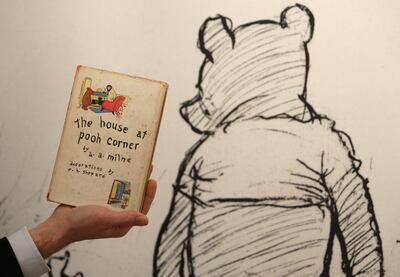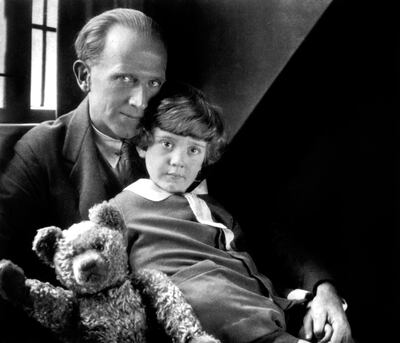The original ‘poohsticks’ bridge that inspired the countryside game immortalised in A. A. Milne’s Winnie-the-Pooh books is being sold at auction in the UK.
The rustic oak bridge, built in 1907, became famous to readers around the world after the author devised the game while playing with his son Christopher Robin in Ashdown Forest, southern England, in the 1920s. He later incorporated both the boy and ‘poohsticks’ into his work.
The game – a race between sticks dropped into a river on one side of the bridge and then seeing which comes out first the other side – was first included in the 1928 book The House at Pooh Corner.

The game proved so popular that the bridge originally designed for horses and carts was officially renamed Poohsticks Bridge in 1979 by Christopher Robin Milne.
It was dismantled 20 years later and replaced with a new bridge after it was worn down by visits from thousands of players to the woods in southern England. It was partly funded by the Disney Corporation, which bought the rights to the characters and has proved to be one of its most valuable franchises.
The original bridge was taken into private hands and currently straddles a lake in Kent, south-east England. Summers Place Auctions said there were no restrictions on the sale on Tuesday and said they had received interest from potential overseas buyers. It is listed with an estimated price of £40,000-£60,000.

“It provides a unique opportunity to buy a piece of literary history in the year Pooh Bear is celebrating his 100th birthday,” said the auctioneers. “He was given to Christopher Robin Milne on his first birthday in 1921.”
The stories of Winnie-the-Pooh, a stout, honey-loving and dim-witted bear, proved to be a literary phenomenon accompanied with illustrations by Ernest Shepard. They were translated into dozens of languages and spawned TV, film and merchandising spin-offs.
Milne’s only son, Christopher Robin – whose soft toys provided the inspiration for other characters in the books such as Eeyore, Piglet and Tigger – died in 1996.


